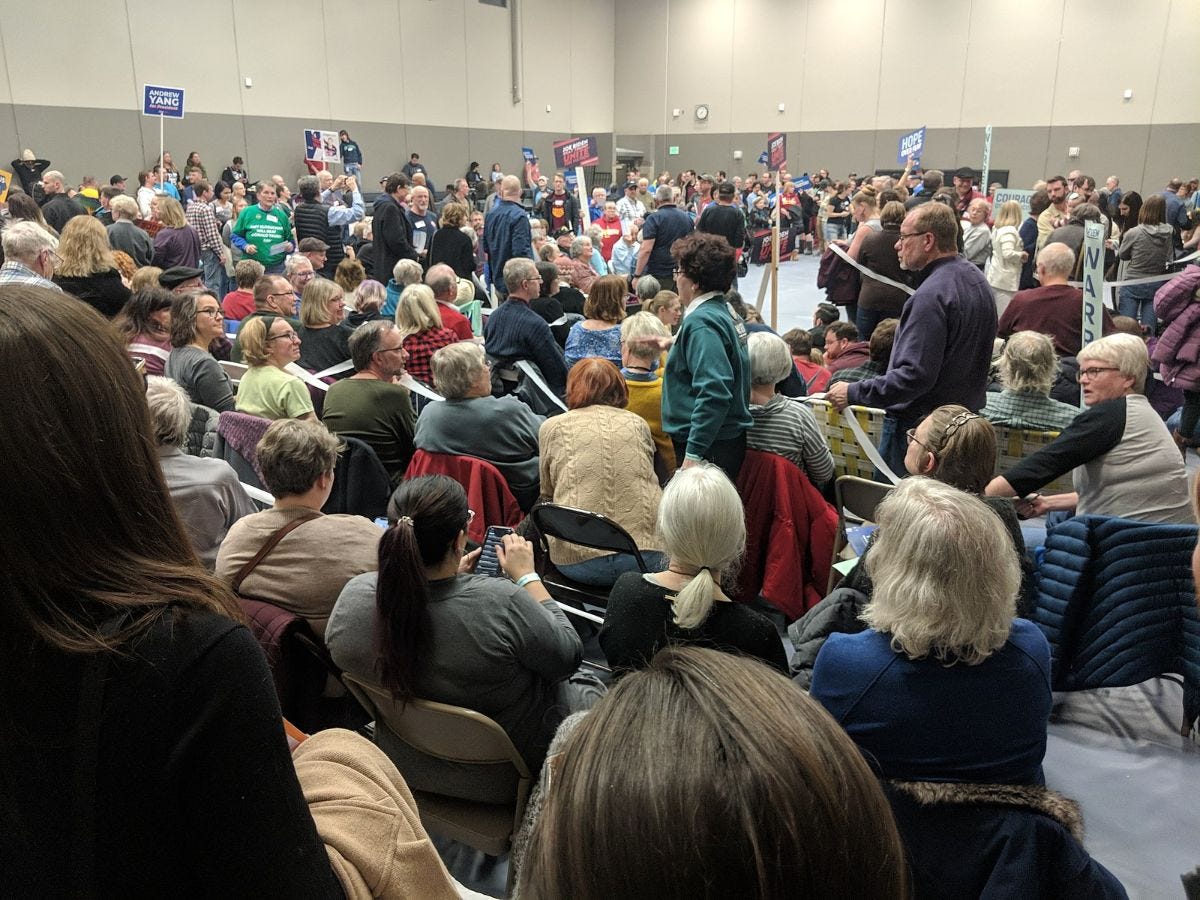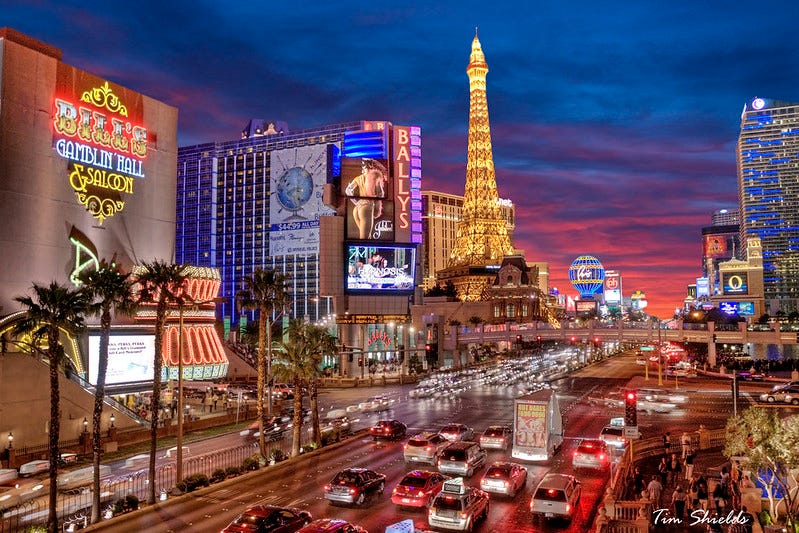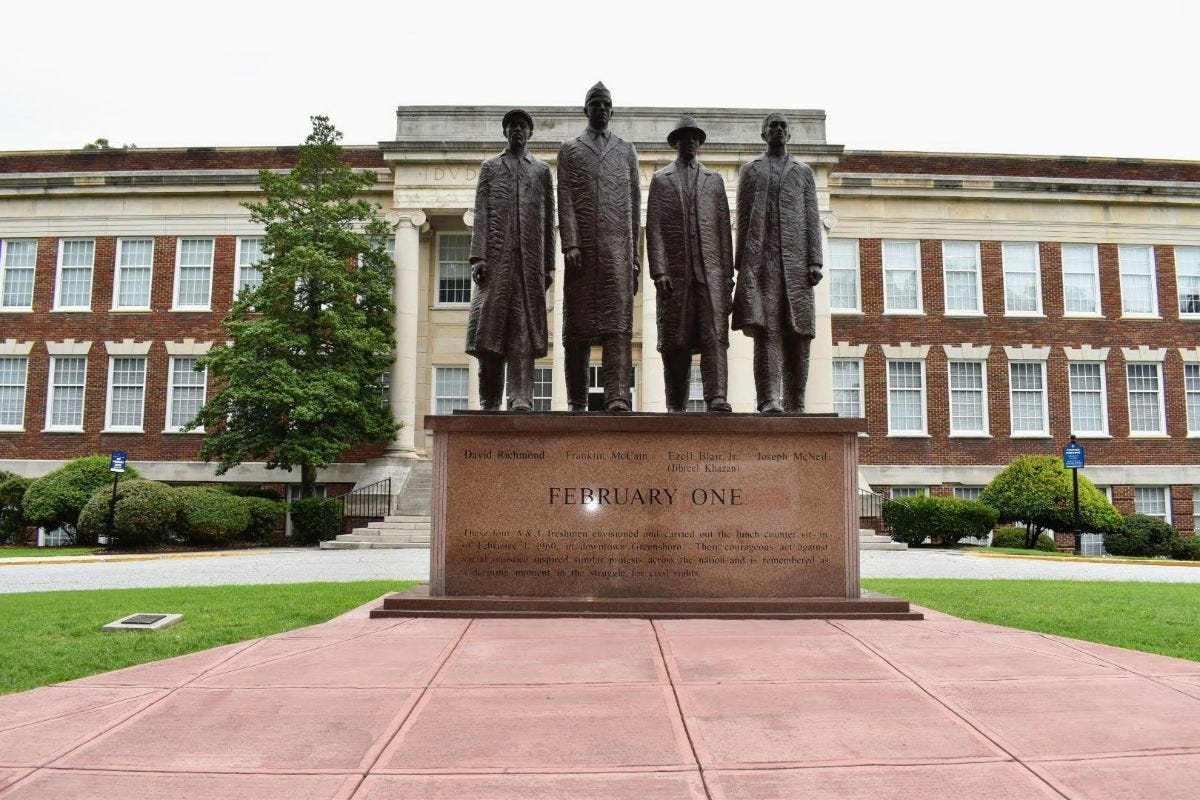Wake Up To Politics - April 14, 2022
Wake Up To Politics: Say goodbye to the Iowa caucuses
by Gabe Fleisher
Good morning! It’s Thursday, April 14, 2022. Election Day 2022 is 208 days away. Election Day 2024 is 936 days away.
Say goodbye to the Iowa caucuses (probably)
If there is any election cycle on your mind right now, it’s probably the 2022 midterms, when control of the House and Senate will be up for grabs in less than seven months.
But, as you can see above, the 2024 elections are inching closer as well. 936 days to go until the general election may sound like a lot, but that means the primary season will start in under two years.
In the modern era, the primaries usually kick off with politicians and operatives from both parties — as well as the nations press corps — hopping on flights to Iowa and New Hampshire, the first two states to hold presidential nominating contests.
Their prime status at the front of the calendar gives the two states outsized power in the presidential process, with candidate spending months (years, really) seeking to curry favor with Iowa and New Hampshire voters and local influencers.
But a lowkey committee meeting on Wednesday might have changed all of that, setting off a dramatic reshuffling of how presidential nominees are chosen, at least for one party.
We’ll get to that in a second. First, some history:
Why going first matters
New Hampshire has held the first-in-the-nation presidential primary in every election cycle since 1920, playing a critical role in a century’s worth of campaigns.
Iowa is newer to the game: the state has held the country’s first presidential caucuses since 1972. (In a caucus, instead of casting your ballot in a voting booth like in a regular election, voters express their choice by publicly grouping together by candidate preference in a large room. I explain more in this podcast episode.)
Both states started going first pretty much by accident, but now their privileged statuses are enshrined in each of their state laws. It is against Iowa law for any state to hold a caucus before Iowa, and it is against New Hampshire law for any state to hold a primary before New Hampshire.
The two parties also protect Iowa and New Hampshire. Democratic and Republican party rules prohibit any states from going before those first two; any rule-breaking states will lose delegates at the party conventions. In recent years, Nevada and South Carolina have been given protected status as well to serve as the third and fourth nominating contests for each party.
By now, voters in these first four states (who comprise about 4% of the U.S. population) play a key role vetting and culling the nation’s presidential candidates: by the time they are done, most of the primary candidates have generally dropped out, with only the contenders who have done well in the early states surviving.
What’s the criticism all about
Frustrations with the two early states have been rising for a while now. For one thing, they are wildly unrepresentative of the nation as a whole: Iowa is 91% white, New Hampshire is 93%.
That demographic skew has meant that the two states have not always elevated primary candidates in line with who the rest of the country wants. For example, in 2020, Joe Biden came in fourth in the Iowa caucuses and fifth in the New Hampshire primary; then, largely fueled by support from Black voters, he romped almost everywhere else.
Nevada (with its large Hispanic population) and South Carolina (with its large Black population) were added to the early lineup to alleviate these concerns. But many candidates who are not former vice presidents often lack the money or stature to stay in past Iowa and New Hampshire if they perform poorly in those first two.
To make matters worse for Iowa, their Democratic caucuses in 2020 also went disastrously: the system for reporting results broke down, setting off another round of criticism of the antiquated caucus process.
So, what now?
Since 2020, Democrats have been looking for ways to shake up their nominating process.
On Wednesday, they made their move: the party’s Rules and Bylaws Committee voted to stop giving Iowa and New Hampshire (and Nevada and South Carolina) the automatic privilege of going first in the primary process.
Instead, for the 2024 cycle, all 50 states will have the opportunity to apply to be one of the first four states to hold Democratic primaries. This move will totally reshape the party’s nominating process, changing which state’s voters get the first say in who should be in the White House.
According to the new plan, the nationwide melee for going first will kick off next month, with the rules committee requiring state parties to submit a letter of intent by May 6. Then, their full applications are due on June 3, with presentations before the committee later that month.
By July 15, the committee will choose the four states they believe should go first; the full Democratic National Committee will then vote to make the party’s 2024 calendar official. (As of now, Republicans are still expected to give Iowa and New Hampshire first-in-the-nation status.)
A bunch of states have already signaled interest in applying for early primaries.
Democrats in Michigan are arguing that the state’s competitiveness in the general election means it should go first. New Jersey pols say their state makes sense, because of its racial diversity and its blend of cities, suburbs, and rural areas. Nevada is pushing itself too, hoping to leaprog from No. 3 in the process to No. 1.
Even more states are likely to try for it. Even Iowa and New Hampshire will be allowed to apply, but they will start with some disadvantages. The Democratic panel said Wednesday that they will take three main criteria into account:
A state’s racial, ethnic, geographic, and economic diversity (including how much union representation the state has)
How competitive a state is in the general election
A state’s ability to run a “fair, transparent and inclusive nominating process,” where voting is accessible and campaigning isn’t too expensive
In other words, don’t bet on the Iowa caucuses being anywhere near first. Is there any state that might have an edge to take their place? FiveThirtyEight ran the numbers last month, trying to find the state with the highest blend of diversity, primary accessibility, union membership, and general election competitiveness.
Their winner: Nevada, which checks all those boxes. Democrats might want to start booking their flights to Las Vegas now.
Catch up
What else you should know this morning.
TECH: Tesla CEO Elon Musk, the world’s richest person, is attempting to buy Twitter, offering to pay $43 billion in a new regulatory filing. The attempt at a takeover is the latest twist in the saga of Musk and Twitter, after he became the company’s largest shareholder last week and (almost) joined its board. Read more
COVID: The CDC announced Wednesday that it will extend its mask mandate for individuals traveling aboard planes, trains, and other forms of public transportation. The mandate had been set to expire April 18; it will now continue for an additional 15 days, until May 3. Read more
UKRAINE: According to a Politico report, the Biden administration is considering sending a high-level official to Kyiv in a show of support for Ukraine. It’s reportedly possible that President Biden or Vice President Harris will go, but Secretary of State Antony Blinken or Defense Secretary Lloyd Austin are more likely candidates. Read more
Look ahead
How your leaders in Washington are spending their time today. (All times Eastern)
Biden’s day: Receiving his daily intelligence briefing (10 am); traveling to Greensboro, North Carolina (10:40 am); meeting with robotics and cybersecurity students at North Carolina Agricultural and Technical State University (1:05 pm).
Then: Delivering remarks at North Carolian A&T on rebuilding America’s supply chains (2:15 pm); traveling to Camp David, the presidential retreat in Maryland, where he he will spend the weekend (5:10 pm).
Notes on his speech: Biden will highlight the bipartisan infrastructure law, as well as bipartisan efforts to strengthen America’s innovation and manufacturing capacity. The House and Senate have passed two different versions of the latter bill and are currently holding a conference committee to resolve their differences.
More on the location: White House press secretary Jen Psaki said at her Wednesday briefing that Biden has “prioritized” visiting Historically Black Colleges and Universities (HBCUs) since taking office. North Carolina A&T is the largest HBCU in the nation, with over 13,000 students.
Harris’ day: Delivering remarks at the virtual White House Passover celebration (6:10 pm). Her husband, Second Gentleman Doug Emhoff (who is Jewish), will speak as well.
Also at the White House: Principal deputy press secretary Karine Jean-Pierre will hold a press gaggle aboard Air Force One during the flight to Greensboro.
On Capitol Hill: Congress is on recess until April 25, but both the House (1 pm) and Senate (3 pm) will briefly convene for pro forma sessions.
What that means: Pro forma sessions are quick meetings held only to satisfy the constitution requirement that each chamber of Congress convene every three days. Generally, only one member attends such sessions — to gavel them in and then promptly gavel them out. No legislative business is conducted.At the Supreme Court: The justices aren’t hearing any cases until April 18.
Links to watch for yourself: Biden speech • Senate pro forma session • House pro forma session
That’s it for today. If you enjoy Wake Up To Politics, it’s always appreciated if you donate to support the newsletter or buy some merch. Or if you tell your friends and family to sign up at wakeuptopolitics.com.
If you have any questions or feedback, feel free to email me: my inbox is always open.
Thanks for waking up to politics! Have a great day.
— Gabe







